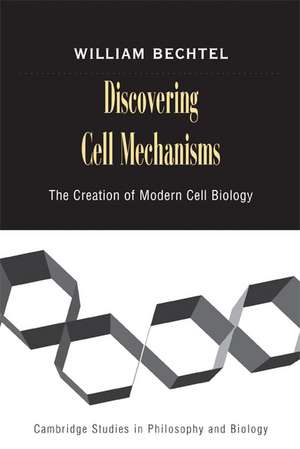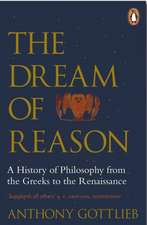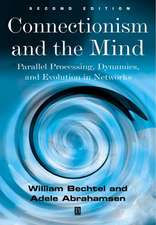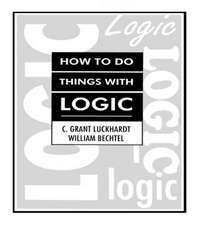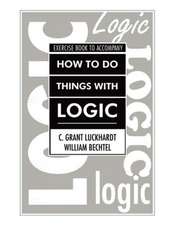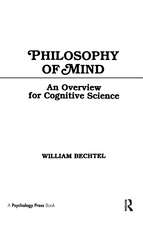Discovering Cell Mechanisms: The Creation of Modern Cell Biology: Cambridge Studies in Philosophy and Biology
Autor William Bechtelen Limba Engleză Paperback – 27 apr 2008
| Toate formatele și edițiile | Preț | Express |
|---|---|---|
| Paperback (1) | 232.63 lei 6-8 săpt. | |
| Cambridge University Press – 27 apr 2008 | 232.63 lei 6-8 săpt. | |
| Hardback (1) | 556.57 lei 6-8 săpt. | |
| Cambridge University Press – 9 oct 2005 | 556.57 lei 6-8 săpt. |
Din seria Cambridge Studies in Philosophy and Biology
- 11%
 Preț: 479.78 lei
Preț: 479.78 lei - 11%
 Preț: 617.45 lei
Preț: 617.45 lei -
 Preț: 278.41 lei
Preț: 278.41 lei -
 Preț: 292.69 lei
Preț: 292.69 lei - 14%
 Preț: 903.74 lei
Preț: 903.74 lei -
 Preț: 315.54 lei
Preț: 315.54 lei -
 Preț: 417.46 lei
Preț: 417.46 lei - 14%
 Preț: 757.37 lei
Preț: 757.37 lei -
 Preț: 299.82 lei
Preț: 299.82 lei -
 Preț: 208.50 lei
Preț: 208.50 lei -
 Preț: 417.84 lei
Preț: 417.84 lei -
 Preț: 390.04 lei
Preț: 390.04 lei - 11%
 Preț: 704.66 lei
Preț: 704.66 lei -
 Preț: 279.48 lei
Preț: 279.48 lei - 11%
 Preț: 417.38 lei
Preț: 417.38 lei -
 Preț: 289.01 lei
Preț: 289.01 lei -
 Preț: 375.68 lei
Preț: 375.68 lei -
 Preț: 321.65 lei
Preț: 321.65 lei -
 Preț: 252.30 lei
Preț: 252.30 lei - 11%
 Preț: 423.22 lei
Preț: 423.22 lei -
 Preț: 272.36 lei
Preț: 272.36 lei -
 Preț: 284.39 lei
Preț: 284.39 lei -
 Preț: 323.95 lei
Preț: 323.95 lei - 11%
 Preț: 682.91 lei
Preț: 682.91 lei - 11%
 Preț: 541.80 lei
Preț: 541.80 lei - 11%
 Preț: 693.51 lei
Preț: 693.51 lei - 11%
 Preț: 693.89 lei
Preț: 693.89 lei - 11%
 Preț: 453.71 lei
Preț: 453.71 lei - 11%
 Preț: 437.40 lei
Preț: 437.40 lei - 14%
 Preț: 685.74 lei
Preț: 685.74 lei -
 Preț: 323.65 lei
Preț: 323.65 lei -
 Preț: 355.74 lei
Preț: 355.74 lei -
 Preț: 393.91 lei
Preț: 393.91 lei
Preț: 232.63 lei
Nou
Puncte Express: 349
Preț estimativ în valută:
44.52€ • 46.31$ • 36.75£
44.52€ • 46.31$ • 36.75£
Carte tipărită la comandă
Livrare economică 14-28 aprilie
Preluare comenzi: 021 569.72.76
Specificații
ISBN-13: 9780521729444
ISBN-10: 0521729440
Pagini: 336
Dimensiuni: 151 x 227 x 20 mm
Greutate: 0.46 kg
Ediția:1
Editura: Cambridge University Press
Colecția Cambridge University Press
Seria Cambridge Studies in Philosophy and Biology
Locul publicării:New York, United States
ISBN-10: 0521729440
Pagini: 336
Dimensiuni: 151 x 227 x 20 mm
Greutate: 0.46 kg
Ediția:1
Editura: Cambridge University Press
Colecția Cambridge University Press
Seria Cambridge Studies in Philosophy and Biology
Locul publicării:New York, United States
Cuprins
Part I. Introduction: Cell Mechanisms and Cell Biology: 1. A different kind of science; 2. The organization of science into disciplines; 3. The new discipline of cell biology; Part II. Explaining Cellular Phenomena through Mechanisms: 4. Historical conceptions of mechanism; 5. Twentieth century conceptions of mechanism; 6. Current conceptions of mechanisms; 7. Representing and reasoning about mechanisms; 8. Levels of organization and reduction; 9. Organization: from Cartesian to biological mechanisms; 10. Discovering and testing models of mechanisms; 11. Conclusions; Part III. The Locus of Cell Mechanisms: Terra Incognita Between Cytology and Biochemistry: 12. Cytological contributions to discovering cell mechanisms up to 1940; 13. Biochemical contributions to discovering cell mechanisms up to 1940; 14. The need to enter the Terra Incognita between cytology and biochemistry; Part IV. Creating New Instruments and Research Techniques to Study Cell Mechanisms: 15. The epistemology of evidence: judging artifacts; 16. The ultracentrifuge and cell fractionation; 17. The electron microscope and electron microscopy; 18. A case study of an artifact charge; 19. Equipped with new instruments and techniques to enter Terra Incognita; Part V. Entering the Terra Incognita Between Biochemistry and Cytology: 20. First steps towards cell biology at the Rockefeller Institute: Claude's introduction of cell fractionation; 21. Robert Bensley: an alternative approach to fractionalism; 22. Competing interpretations of fractions from normal cells; 23. Linking Claude's microsomes to protein synthesis; 24. Adding a biochemical perspective to the Rockefeller Laboratory; 25. Adding electron microscopy as a tool; 26. The state of cell studies at the end of the 1940's; Part VI. New Knowledge: the Mechanisms of the Cytoplasm: 27. The mitochondrion; 28. Microsomes, the endoplasmic reticulum, and ribosomes; 29. Two additional organelles; 30. Giving cell biology an institutional identity.
Recenzii
This volume…will be useful not only to cell biologists interested in the embryology of their field, but also to theorists and historians of science concerned with the boundaries of fields of intellectual inquiry.
-Choice
"For decades historians have been preoccupied with genetics and molecular biology. However, mitochondria, ribosomes, Golgi bodies, and lysosomes explain the life processes of the cell; DNA does so only peripherally. This is their much needed story."
-Douglas Allchin, Isis
"Historians will appreciate Bechtel's thorough research in the archives of the Rochefeller Foundation and the American Society for Cell Biology, as well as his use of oral history interviews with some of the principal scientists...Cell biologists especially welcome this new history of their field."
-Lindley Darden, University of Maryland, Journal of the History of Biology
-Choice
"For decades historians have been preoccupied with genetics and molecular biology. However, mitochondria, ribosomes, Golgi bodies, and lysosomes explain the life processes of the cell; DNA does so only peripherally. This is their much needed story."
-Douglas Allchin, Isis
"Historians will appreciate Bechtel's thorough research in the archives of the Rochefeller Foundation and the American Society for Cell Biology, as well as his use of oral history interviews with some of the principal scientists...Cell biologists especially welcome this new history of their field."
-Lindley Darden, University of Maryland, Journal of the History of Biology
Notă biografică
Descriere
Bechtel emphasises how mechanisms were discovered by cell biologists and the instruments that made these inquiries possible.
